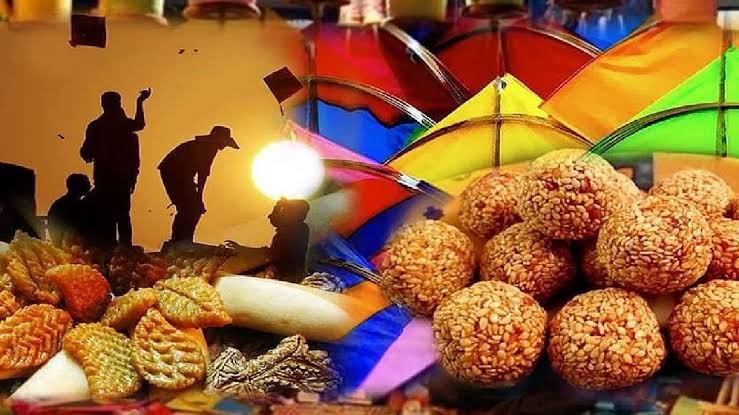A festival of hope, abundance & new beginning: Makar Sankranti
Beyond its agricultural roots, Makar Sankranti is steeped in cultural customs and rituals. Families gather to offer prayers, exchange tilgul (sesame and jaggery sweets), and participate in various traditional practices that symbolize the renewal of life and relationships. One of the most captivating aspects of Makar Sankranti is its diverse regional celebrations.

As the winter chill relinquishes its hold, India eagerly welcomes the vibrant festival of Makar Sankranti. This annual celebration marks the transition of the sun into the zodiac sign of Capricorn, symbolizing hope, abundance, and a new beginning. It is a cherished festival in India because of its Astrological, Agricultural, Spiritual & Cultural significance.
Astrological Marvel:
Makar Sankranti holds a unique place in Indian astrology, representing the end of the winter solstice and the commencement of longer days. The celestial journey of the sun into Capricorn is believed to bring auspiciousness and spiritual growth, adding a cosmic dimension to the festivities.
Agricultural Abundance:
Embedded in the agrarian landscape of India, Makar Sankranti becomes a momentous occasion for farmers. The festival marks the culmination of the winter crop cycle, a time to express gratitude for a bountiful harvest, and to seek blessings for future prosperity. Fields resonate with the joyous echoes of celebrations, creating a bond between nature and humanity.
Cultural Customs & Spiritual Essence:
Beyond its agricultural roots, Makar Sankranti is steeped in cultural customs and rituals. Families gather to offer prayers, exchange tilgul (sesame and jaggery sweets), and participate in various traditional practices that symbolize the renewal of life and relationships. One of the most captivating aspects of Makar Sankranti is its diverse regional celebrations.
From the kite-flying frenzy in Gujarat to the sweet exchanges in Maharashtra, each state embraces the festival with unique customs, reflecting the rich cultural mosaic of India. In Tamil Nadu, Makar Sankranti assumes the name Pongal, presenting a distinct Southern flavor.
The boiling of the first rice of the season in a decorated clay pot becomes a symbolic act, representing the abundance and prosperity associated with the harvest. For many, Makar Sankranti is a day of spiritual devotion. Devotees take holy dips in rivers, seeking blessings from deities, and offering gratitude for the sun's life-giving energy. The festival becomes a sacred blend of tradition and faith.
As the colourful kites soar high, fields echo with laughter, and families come together, Makar Sankranti emerges as a celebration that intertwines cultural richness, agricultural significance, and spiritual devotion. In Makar Sankranti, the nation rejoices in the cyclical rhythm of life, finding joy in the interconnectedness of nature, tradition, and the human spirit.
Article by
Shakshi Gupta

